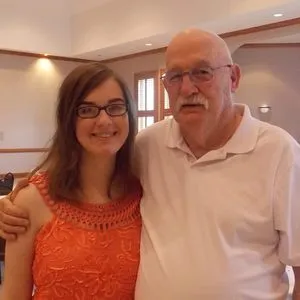Growing up, I was always a fairly happy, normal child. There were no major issues with stress or anxiety for a good portion of my childhood. Then, when I was 11, my parents separated. Stressed out and sad that my parents were no longer together, I began to pull my own hair out of my head.
I have a condition called trichotillomania, better known as “hair-pulling disorder”. It’s estimated that 1-2% of the population has this disorder, which involves the uncontrollable urge to pull one’s hair out. Sufferers pull from any place that they can, but typically they pull from their scalp and eyebrows like I did. Having trichotillomania has had a major impact on my life from the time that I began to exhibit symptoms.
I was 11 when I began to exhibit symptoms of the disorder and had just begun middle school. Young kids aren’t always kind to things that they don’t understand, and I got bullied for being “weird”. Eventually, I pulled so much of my hair out that bald patches began to form. I went from having thick, beautiful brown hair to having patchy, limp, lifeless hair within the span of under a year.
My first battle with trichotillomania lasted until I was about 13, so I spent over a year and a half constantly pulling hair, and I was miserable the entire time. It’s embarrassing, especially when you’re so young, to have such patchy looking hair. Regardless of how hard I tried, I just couldn’t stop myself from pulling. Although I have a better understanding now of the fact that I have an impulse-control disorder and legitimately cannot control my pulling, I often was embarrassed and ashamed that I couldn’t make myself stop pulling.

Eventually, I stopped pulling for a while but began pulling again when I was 15. This time, the pulling only lasted for a few months, but the damage to my hair was significant. I was fine again until my senior year of high school when the pressure of graduating and going to college really began to get to me. I was anxious about leaving my friends and I pulled for most of the second semester.
That summer, I went to NC State’s Summer Start program for incoming freshman, and the pulling worsened. The 5-week program was a big emotional challenge for me; I missed my friends and family, schoolwork was proving more difficult than I thought it would be, and, towards the end of my summer semester, a family friend, whom I had known my entire life, passed away of ovarian cancer.
All of the anxiety and stress further excelled my disorder. I pulled the entire summer, even when I got back home, and my pulling continued throughout my freshman year.

Thankfully, I have mostly stopped pulling by this point. At the beginning of the year, I joined my residence hall council and have been fortunate to find an amazing group of friends that have really inspired me to stop pulling. Now I have a healthy outlet for my stress instead of pulling my hair. Outside of a few minor slips, I haven’t pulled in six months.
Although I have gone a full six months without pulling, the long-term damage to my hair is permanent. My once thick hair is now thinner than it was before I started pulling, and more than likely will never return to the strength that it had before I began my battle with trichotillomania.
I’m also always subconsciously afraid that I am going to start pulling again. I am heavily involved in different organizations on-campus and recently have suffered the unexpected loss of family members. This additional stress has been really challenging for me, and I’m worried that I might relapse again. Thankfully that hasn’t happened yet, but I’m always afraid that I might go back to pulling as a coping mechanism. Regardless of how long I go without pulling, the possibility of slipping up is always there, and I have to always be very careful not to fall back into that self-destructive pattern.
I’ve spent almost nine years of my life so far battling this disorder on-and-off. Hopefully, I’m finally through giving up my life to this disorder and the shame and embarrassment that it has caused me throughout my life, but regardless of what happens in the future, I’m so thankful for the past six pull-free months.



